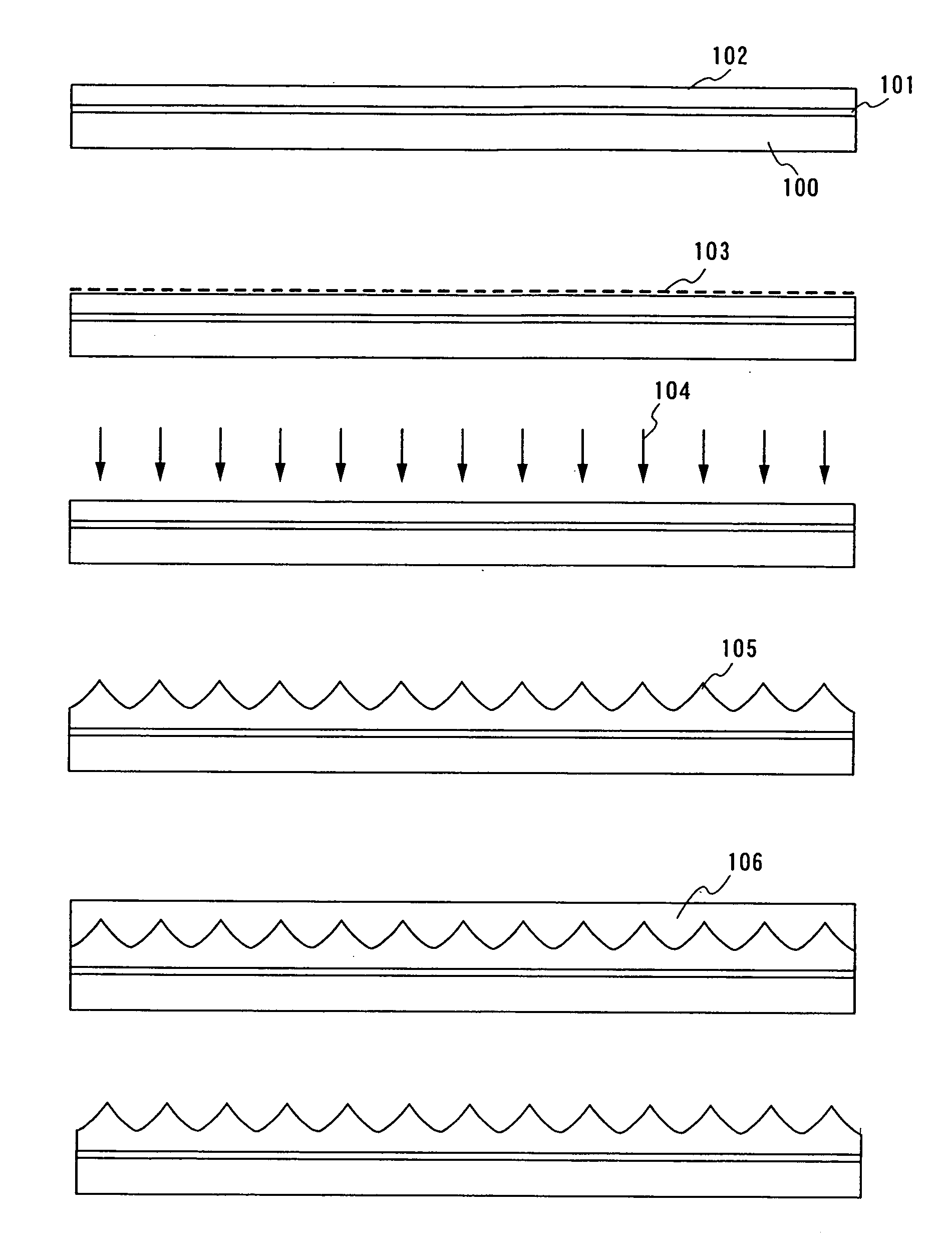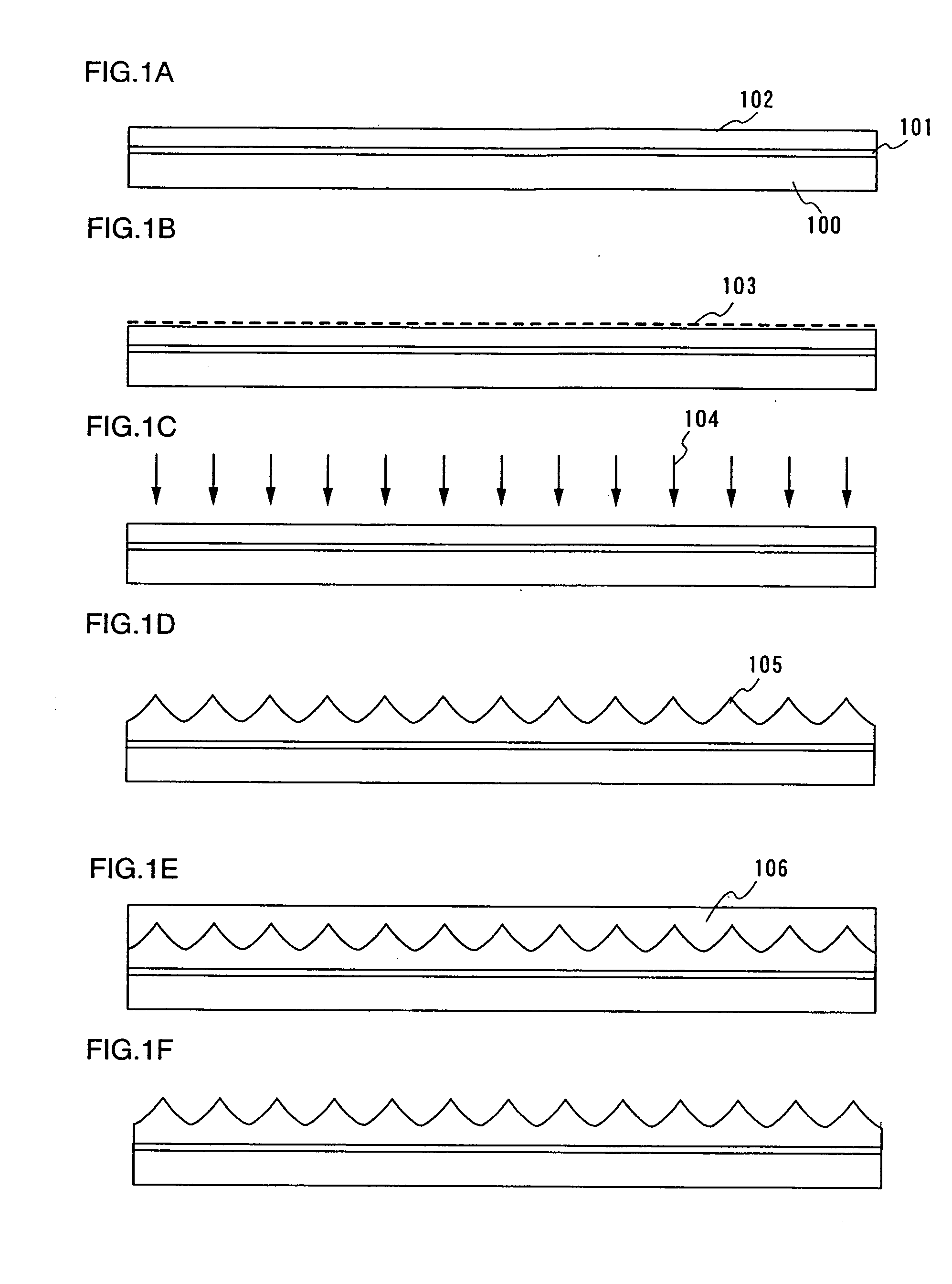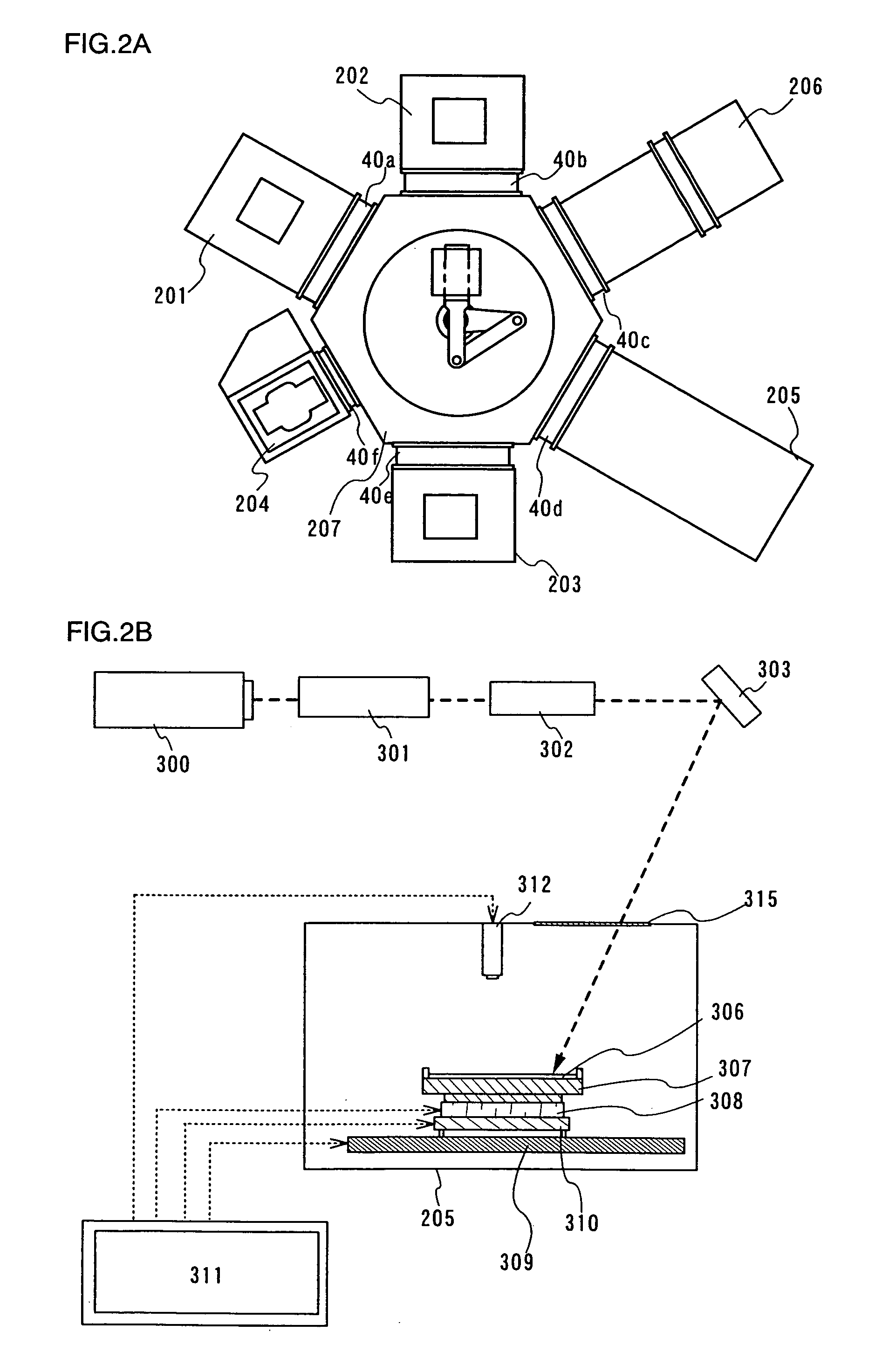Method for manufacturing semiconductor device, and laser irradiation apparatus
a laser irradiation and semiconductor technology, applied in the direction of transistors, chemistry apparatus and processes, crystal growth processes, etc., can solve the problems of difficult manufacturing of tft, difficult to form all channel-forming regions, and display unevenness visible to observer, so as to reduce adverse effects, reduce the variation in electrical characteristics of tft, and enhance the mobility of thin film transistors
- Summary
- Abstract
- Description
- Claims
- Application Information
AI Technical Summary
Benefits of technology
Problems solved by technology
Method used
Image
Examples
embodiment modes
Embodiment Mode 1
[0058] The present embodiment mode explains a method for manufacturing a crystalline semiconductor film in detail.
[0059] Initially, as shown in FIG. 1A, a base film 101 is formed on a substrate 100 having an insulating surface. A glass substrate such as a barium borosilicate glass or an alumino borosilicate glass, a quartz substrate, or an SUS substrate can be used as the substrate 100 for example. In addition, although a substrate made of flexible synthetic resin such as acryl or plastic typified by PET, PES, PEN, or the like tends to be inferior in resistance against the heat to the other substrates, the substrate made of flexible synthetic resin can be used when it can resist the heat generated in the manufacturing process.
[0060] The base film 101 is provided in order to prevent that alkali-earth metal or alkali metal such as Na included in the substrate 100 diffuses into the semiconductor film to have an adverse affect on a characteristic of a semiconductor d...
embodiment mode 2
[0089] The present embodiment mode explains a multi-chamber apparatus having a laser irradiation apparatus and an optical system in the laser irradiation apparatus.
[0090]FIG. 2A shows a multi-chamber apparatus including a first treatment chamber 201 where the processes up to forming an amorphous semiconductor film can be performed, a second treatment chamber 202 where the metal element can be added, a third treatment chamber 203 where a heat treatment can be performed, an unload chamber 204 where a substrate can be unloaded, a laser irradiation chamber 205 where the laser irradiation is performed, and a load chamber 206 where the substrate can be stored, each of which is provided around a transferring chamber 207. Each treatment chamber and the like are connected to the transferring chamber 207 with transferring gates 40a to 40f respectively interposed therebetween. By providing each treatment chamber and the like around the transferring chamber having transferring means, transferr...
embodiment mode 3
[0109] The present embodiment mode explains a light-emitting device as an example of a semiconductor device having a crystalline semiconductor film.
[0110]FIG. 7A shows a light-emitting device where a signal line driver circuit 1200, a scanning line driver circuit 1201, and a pixel portion 1202 are formed on a first substrate 1210.
[0111]FIG. 7B is a cross-sectional view of the display device taken along A-A′ in FIG. 7A, which illustrates the signal line driver circuit 1200 equipped with a CMOS circuit having an n-channel TFT 1223 and a p-channel TFT 1224 on the first substrate 1210. The n-channel TFT 1223 and the p-channel TFT 1224 are formed using the crystalline semiconductor film of high quality obtained by performing the laser annealing with the use of the pulsed laser whose polarization direction is controlled. TFT forming the signal line driver circuit 1200 and the scanning line driver circuit 1201 may be formed by the CMOS circuit, a PMOS circuit, or an NMOS circuit.
[0112] ...
PUM
 Login to View More
Login to View More Abstract
Description
Claims
Application Information
 Login to View More
Login to View More - R&D
- Intellectual Property
- Life Sciences
- Materials
- Tech Scout
- Unparalleled Data Quality
- Higher Quality Content
- 60% Fewer Hallucinations
Browse by: Latest US Patents, China's latest patents, Technical Efficacy Thesaurus, Application Domain, Technology Topic, Popular Technical Reports.
© 2025 PatSnap. All rights reserved.Legal|Privacy policy|Modern Slavery Act Transparency Statement|Sitemap|About US| Contact US: help@patsnap.com



